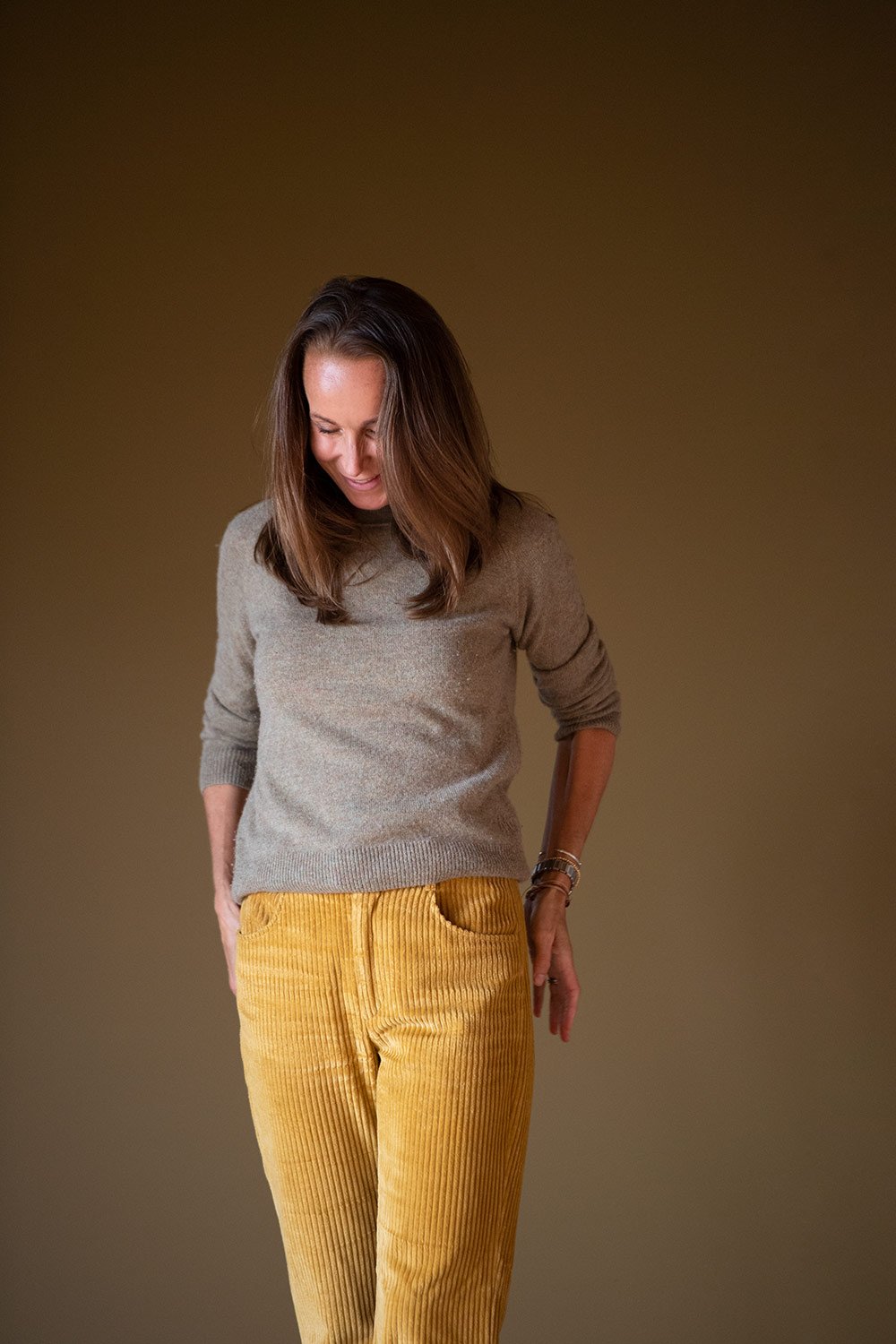The Invisible Line
There’s this invisible line that many creative entrepreneurs struggle to cross, and I see it all the time. On one side, you’re a creative person who happens to sell their offerings. On the other side, you’re a business owner who happens to be creative.
It sounds like a small difference, but it changes absolutely everything about how you operate.
The Creative vs. Creative Business Owner Mindset
When you see yourself solely as a creative, you often end up apologising for your prices. You undervalue your expertise. You treat your business like a hobby that accidentally started making money. You say things like “I’m not really a business person” or “I simply love making beautiful things” – as if loving creativity somehow makes you less professional.
But when you step into being a creative business owner, you own your expertise. You price with confidence. You make strategic decisions. You communicate your value clearly. You see your creativity not as something separate from business skills, but as your unique business advantage.
The work doesn’t change. The skills don’t change. Your passion for creating doesn’t diminish. But how you show up in the world changes completely.
My Own Identity Shift
I remember this shift in my own journey. For the longest time, I felt like I was playing at being in business. I’d apologise for my prices, explain away my success, downplay my achievements. I thought that being humble about my work was somehow more authentic.
But I realised that this “humility” wasn’t serving anyone – not me, not my clients, not the industry. It was actually holding everyone back. My clients needed me to be confident in my expertise so they could trust me with their important projects. The industry needed creative professionals who owned their value and raised the standards for everyone.
The shift happened gradually, but there was a defining moment when a client told me they’d chosen me specifically because I was confident about what I could deliver. They didn’t want someone who was unsure – they wanted someone who knew their stuff and could guide them through the creative process with certainty.
What It Really Means to Be a Creative Business Owner
Being a creative business owner isn’t about losing your creativity or becoming corporate. It’s about recognising that your creativity IS your business advantage, and treating it with the respect and professionalism it deserves.
This shift is about recognising and owning what you’ve already built. You already solve problems for people. You already create value that people pay for. You already manage projects, handle clients, make strategic decisions about your work. You’re already doing the work of a business owner.
The only thing that needs to change is how you see yourself and how you present yourself to the world.
What Changes When You Own This Identity
When you own your identity as a creative business owner, several things happen:
You start making decisions from a place of confidence rather than fear. Instead of second-guessing every choice, you trust your expertise and experience.
You price your work based on its value rather than your insecurities. You stop undercharging because you recognize what you bring to the table.
You communicate with clients as an equal rather than someone who’s lucky to have the work. This creates better relationships and more respect for your expertise.
You give your clients permission to see you that way too. When you show up as a confident business owner, they trust you more, value your input more, are happier to pay your prices, and refer you to others with confidence.
Practical Steps to Make the Shift
Start with your language. This might seem small, but language shapes how we think about ourselves and how others perceive us.
Instead of “I’m trying to build a business,” say “I run a business.” Instead of “I’m hoping to make this work,” say “I’m growing my business strategically.” Instead of apologising for your unique approaches, own them.
Start using “client” instead of “customer” if that feels more professional. Talk about “projects” instead of “jobs.” Refer to your “expertise” instead of just your “skills.”
These aren’t just word changes – they’re signals to yourself and others about how seriously you take what you’ve built. When you start talking like a business owner, you start thinking like one, and others start seeing you as one.
Create one small system this week that makes you feel more professional. Maybe it’s a simple client onboarding email. Maybe it’s a project brief template. Maybe it’s creating a dedicated workspace that signals “this is where serious work happens.”
Small professional touches signal to you – and your clients – that this is a real business run by someone who takes their work seriously.
The Bottom Line
You’re not becoming a different person when you step into being a business owner. You’re not losing your creativity or your passion. You’re simply recognising and owning what you’ve already built.
You’re not becoming a business owner – you already are one. Now it’s just about stepping fully into that identity and owning it.
Being a creative business owner means treating your creativity with the respect and professionalism it deserves. It means owning your expertise, pricing with confidence, and showing up in the world as the professional you already are.
Your creativity is your business advantage. It’s time to own it completely.

Comments +